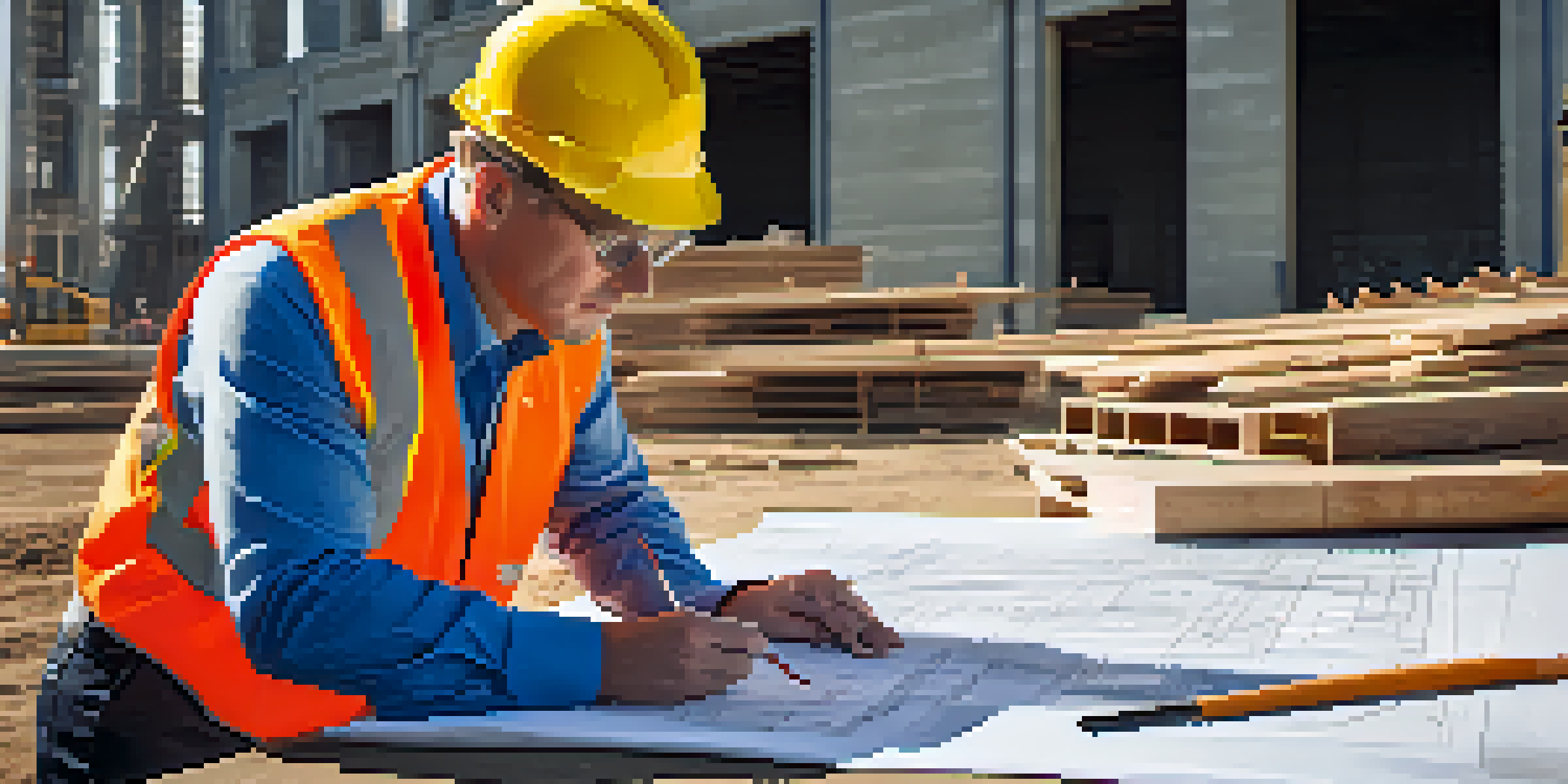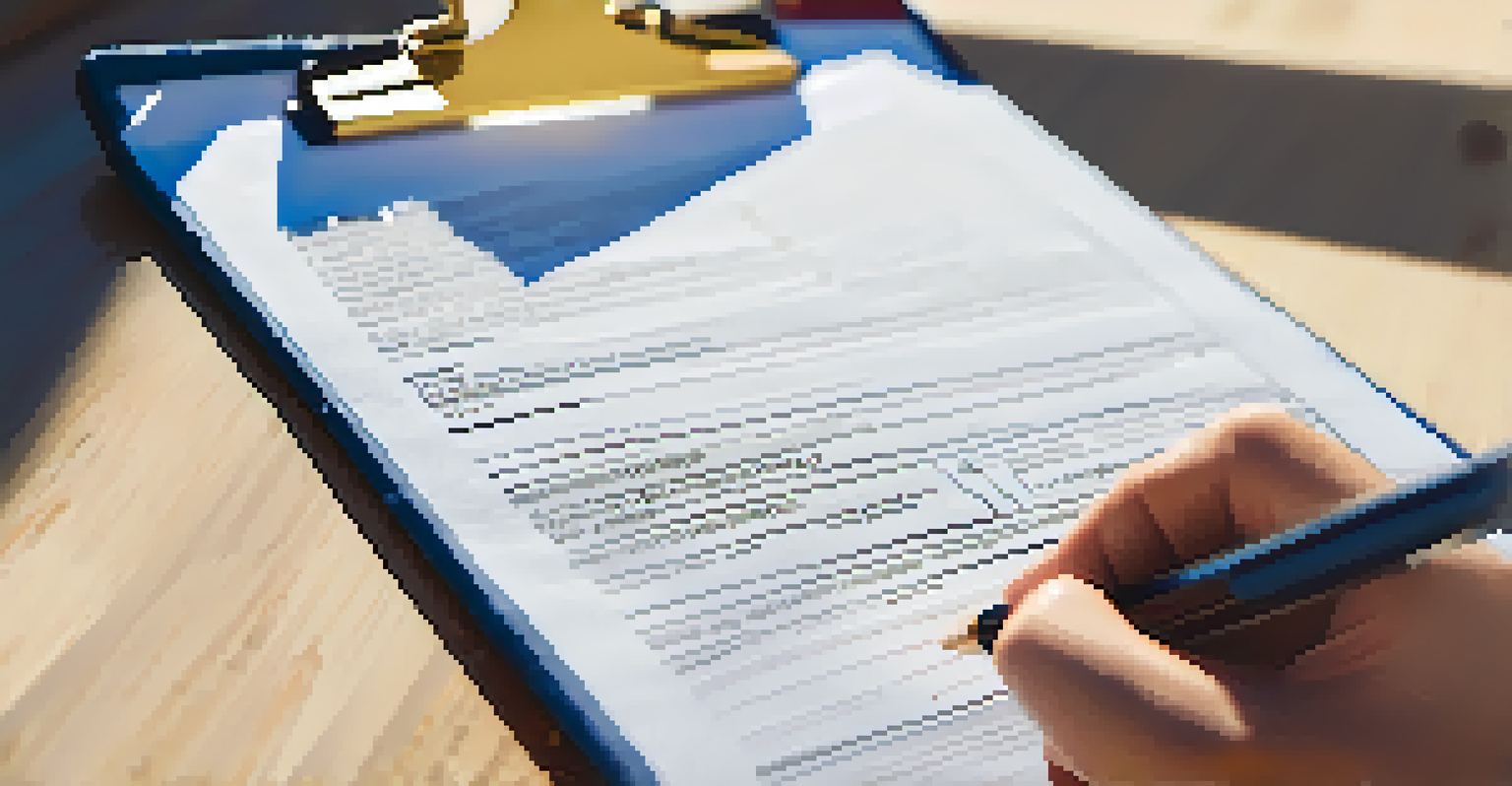The Importance of Clear Communication with Your Inspector

Understanding the Role of Your Inspector in the Process
Your inspector plays a crucial role in ensuring that everything is up to code and safe. This individual is not just a bureaucratic figure but a knowledgeable professional who can guide you through the complexities of regulations. By understanding their role better, you can appreciate the importance of their insights and recommendations.
The single biggest problem in communication is the illusion that it has taken place.
Think of your inspector as a coach on your team—someone who helps you identify areas that need improvement and celebrates your successes. When you communicate openly, you're essentially sharing your game plan, which allows them to provide you with tailored advice that suits your specific needs.
Clear communication sets the stage for a collaborative relationship, making the inspection process smoother and more effective. It allows you to voice your concerns and expectations, ensuring that both you and your inspector are on the same page.
Building Trust Through Open Dialogue
Trust is the foundation of any successful partnership, and this holds true for your relationship with your inspector. When you engage in open dialogue, you create a space where both parties feel comfortable discussing issues. This trust allows for a more thorough and honest inspection process.

Imagine you're working together like a well-oiled machine. The more you communicate your concerns or questions, the better your inspector can address them. This proactive approach not only helps build trust but also ensures that nothing gets overlooked during the inspection.
Communication Builds Trust
Engaging in open dialogue with your inspector fosters trust, leading to a more thorough and honest inspection process.
Ultimately, a trusting relationship leads to better outcomes for everyone involved. When your inspector knows they can rely on you to be forthcoming, it fosters a culture of transparency that benefits the entire project.
Clarifying Expectations for a Smooth Inspection
Setting clear expectations is key to avoiding misunderstandings. Before the inspection, take the time to outline what you hope to achieve, any specific areas of concern, and timelines. Clear expectations help your inspector prepare and focus on what matters most to you.
Trust is built with consistency.
Think of it like planning a road trip; without a clear destination, you might end up lost. By sharing your goals, you allow your inspector to align their efforts with your vision, ensuring that the inspection process is tailored to meet your specific needs.
When expectations are clear, both you and your inspector can navigate the inspection with confidence. This clarity not only reduces anxiety but also enhances the quality of the inspection itself.
Encouraging Questions to Foster Understanding
Encouraging questions is a vital part of the communication process. Whether you're unsure about a specific code or want clarification on a recommendation, asking questions ensures you fully understand the inspection results. It’s important to remember that no question is too small or silly.
Think of your conversation with your inspector as a learning opportunity, where both parties can share knowledge. By asking questions, you're not just seeking answers; you're fostering a dialogue that can lead to better insights and solutions.
Set Clear Expectations
Defining your goals and concerns before the inspection helps your inspector focus on what matters most to you.
This two-way street of communication not only enhances your understanding but also empowers your inspector to address your unique concerns effectively. In turn, this leads to a more successful inspection outcome.
Documenting Communication for Future Reference
Keeping a record of your communications with your inspector can save you a lot of headaches down the line. Whether it's notes from meetings, emails, or reports, having documentation ensures that you can refer back to previous discussions. This can be particularly useful for clarifying points or addressing any discrepancies that may arise.
Think of it as creating a roadmap for your project. With documented communication, you can easily track your progress and revisit important decisions or agreements made along the way. This not only helps you stay organized but also strengthens your relationship with your inspector.
Moreover, should any issues arise in the future, having a documented trail can be invaluable. It allows for constructive discussions and ensures that everyone remains accountable.
Respecting Your Inspector's Expertise
Respecting your inspector's expertise is essential for creating a positive working relationship. These professionals have undergone extensive training and possess a wealth of knowledge about building codes and safety regulations. Acknowledging their expertise not only fosters respect but also encourages a more fruitful exchange of ideas.
Think of your inspector as a seasoned gardener; they know what works and what doesn’t. By valuing their insights, you allow them to guide you toward the best practices and solutions for your project.
Value Expertise for Better Outcomes
Respecting your inspector's expertise enhances collaboration and ultimately leads to improved project results.
When you show respect for their expertise, you're more likely to receive comprehensive feedback and recommendations. This collaboration ultimately leads to better project outcomes and a stronger partnership.
Following Up to Ensure Clarity and Resolution
Following up after the inspection is a key step in maintaining clear communication. Whether it’s to clarify a point discussed or to ensure that any issues raised have been addressed, a follow-up signals your commitment to a successful project. It shows your inspector that you value their input and are proactive about resolving any concerns.
Think of this follow-up as a friendly reminder—a way to keep the lines of communication open. It also provides an opportunity for your inspector to share further insights or recommendations that may enhance the project.

In the end, regular follow-ups can lead to a more effective inspection process and ensure that all parties remain aligned. This ongoing communication is essential for achieving the best possible results.